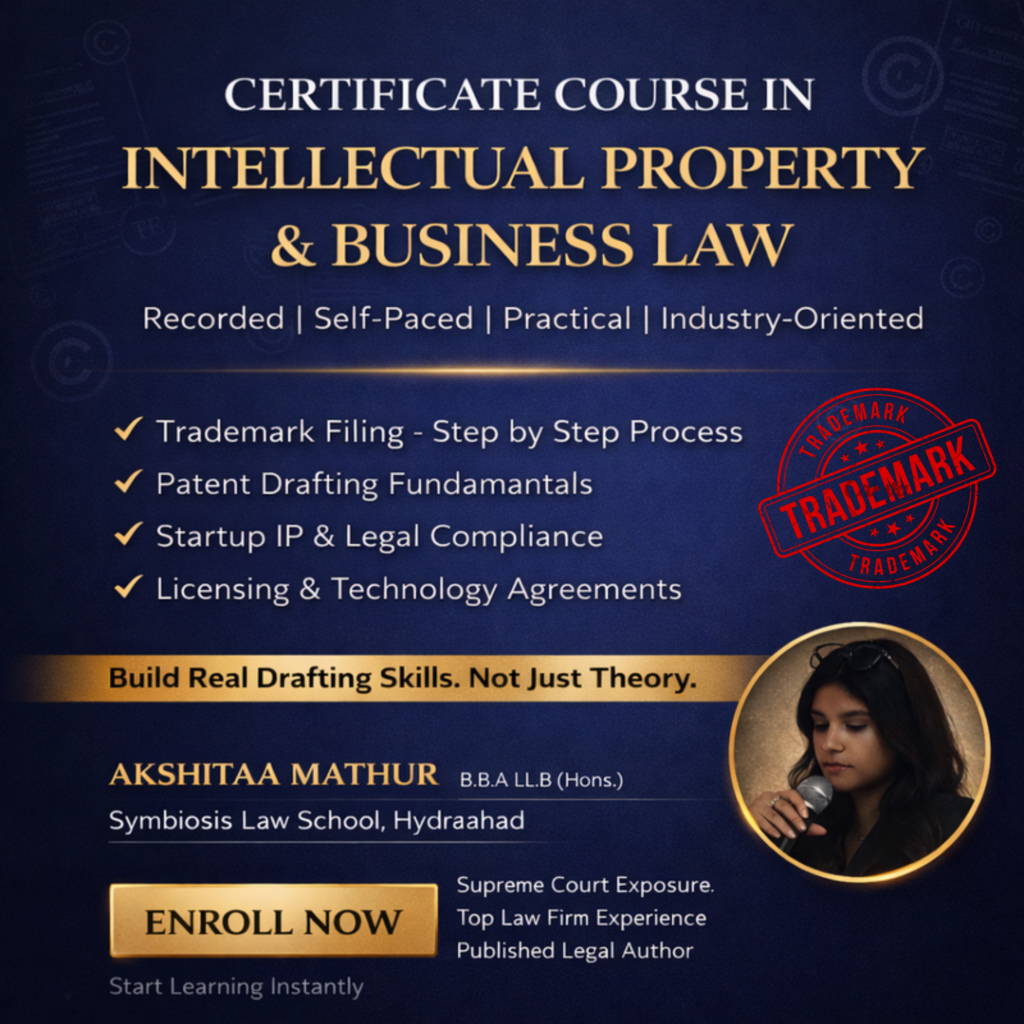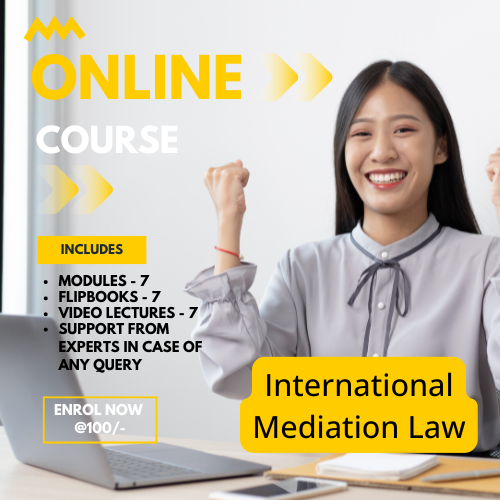International Mediation Law

Module 1: Introduction to Mediation
Content: Video Lectures – 1 | FlipBook – 1
Module 2: Rules governing Mediation: International and Domestic framework
In the previous module, we have discussed how mediation is a voluntary, party-centred and structured process where a neutral third party assists the parties in amicably resolving their dispute by using specialized communication and negotiation techniques. One of the most attractive features in mediation is that the parties retain the right to decide for themselves whether to settle a dispute and the terms of any settlement
Content: Video Lectures – 1 | FlipBook – 1
Module 3: Difference between Mediation, Conciliation and Arbitration
Content: Video Lectures – 1 | FlipBook – 1
Module 4: Understanding the Theory of Conflict
Content: Video Lectures – 1 | FlipBook – 1
Module 5: Mediator’s Code of Conduct
Content: Video Lectures – 1 | FlipBook – 1
Module 6: The stages of Mediation
Mediation is a process in which the parties to a dispute, with the assistance of a neutral third party (the mediator), identify the disputed issues, consider alternatives and endeavor to reach an agreement. The mediator has no advisory or determinative role in regard to the content of the dispute or the outcome of its resolution, but may advise on or determine the process of mediation to attempt a resolution.
Content: Video Lectures – 1 | FlipBook – 1
Module 7: The Singapore Declaration: Its impact on the World of Mediation
The Singapore Declaration on Mediation (also known as the United Nations Declaration on International Settlement Agreements Resulting from Mediation) is a new multilateral treaty developed by the U.N. Commission on International Trade Law (UNCITRAL).
Content: Video Lectures – 1 | FlipBook – 1
Certification
Steps to get certificates (Quiz button will soon appear):
- Complete the Quiz
- 30 Questions
- 120 Marks
- MCQ based
- Minimum Marks Needed to get Certificate – 84 marks (70%)
- Quiz can be attempted only once in this package




